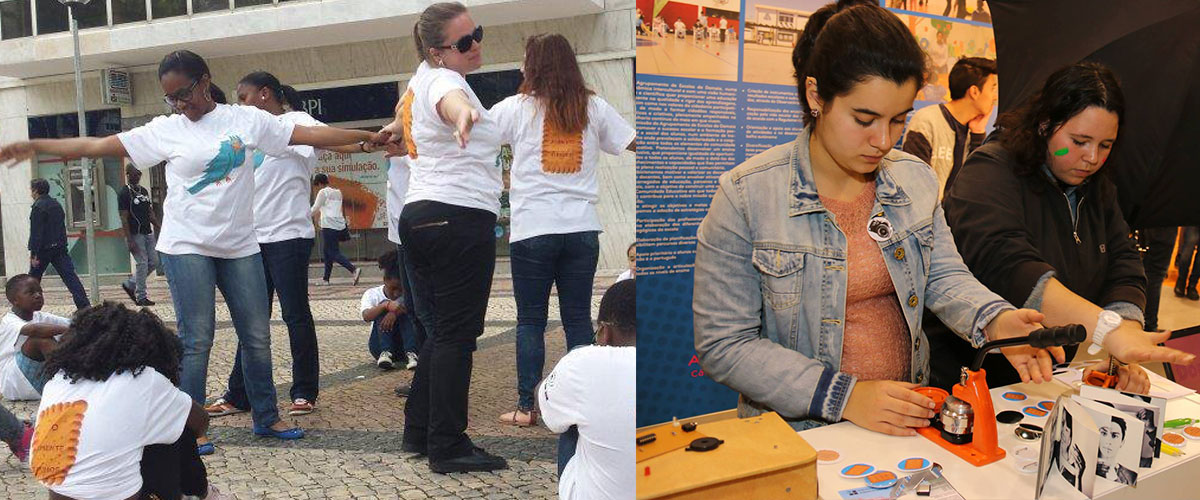The municipality of Amadora is located in Lisbon North Metropolitan Area and is a major residential suburb of Lisbon and part of the urban conurbation. It is a medium-sized city in terms of population with 178,169 inhabitants as of December 2017 with a small territory of 24km2 . In the 1970’s, Amadora saw high levels of immigration- both from rural Portugal and also immigrants and returnees from former colonies in Africa. Alongside this immigration, Amadora saw a growth in poor quality housing and high levels of economic and social deprivation. Amadora and its inhabitants became associated with precarious housing cores and living conditions, poverty and crime. A negative image of the area and its residents has built over time, partly as a result of negative media coverage. Although being a relatively new municipality (created in 1979), Amadora has transformed through large-scale urban regeneration, including major schemes of housing renewal and infrastructure and transport investments. This has been combined with investment in social regeneration and policy initiatives, particularly in the field of education, family policy and inclusion of immigrants. It was within this context of a diverse, dynamic and multicultural city that the good practice, ‘Do Not Feed the Rumour’ was developed and implemented.
Do Not Feed the Rumour was developed and implemented from 2014-15, through Amadora’s participation in the Council of Europe (CoE) project “Communication for Integration: social networking for diversity (C4I)”. Based upon practice originally developed in Barcelona, this programme brought together a network of 11 cities from 7 European countries. (Amadora, Loures, Bibao, Sabadell, Limerick, Botkyrka, Nuremberg, Erlangen, Lublin and Patras) to learn from Barcelona’s experience and develop their own anti-rumour campaigns. Using Barcelona’s experience, Amadora produced their own bespoke approach to an anti-rumour strategy.
The approach represents primarily a strategy for directly and assertively addressing the issue of prejudice and misinformation through dispelling rumours and deconstructing stereotypes. Additionally, the practice fosters an appreciation of diversity and social cohesion through both the sharing of information and integration activities. While the anti-rumour practice can be applied to any form of prejudice and perception change, in the case of Amadora, the focus was on prejudice towards migrants and migration.
The two main objectives were to:
- Contribute to the promotion of cultural diversity and social cohesion through the deconstruction of rumors, stereotypes about immigrants and the city of Amadora.
- Promote a change in perceptions, behaviors and attitudes towards immigrants and towards the city of Amadora.
The project in Amadora involved 75 organisations and reached about 2,500 people. The Municipality was able to second a member of staff to act as local network co-ordinator
 Young people at march against discrimination in Amadora and campaign badge making
Young people at march against discrimination in Amadora and campaign badge making
For more information on this good practice click here
Additional links and resources
There is a wealth of resources available, including a toolkit, training resource pack and step by step guide to anti-rumour diagnosis on the Council of Europe Anti-rumours page
https://www.coe.int/en/web/interculturalcities/anti-rumours
Anti Rumours Global Facebook links to projects, videos, news about other anti-rumour cities
https://www.facebook.com/AntiRumoursGlobal/
Set of 5 anti rumour strategy videos published by Intercultural Cities on You Tube
https://www.youtube.com/channel/UCPMlIA0pghNMYsmGQT62daw
Anti-Rumour Youth- Keys to work anti-rumour content with young people (2020)
https://rm.coe.int/guide-anti-rumour-youth-keys-to-work-anti-rumours-content-with-young-p/1680a0adcb
Anti-Rumours Guide for the Educational Field (2020)
https://rm.coe.int/an-antirumours-guide-for-the-educational-field/16809f976c
Anti-rumour agent resource pack (produced by Doras Luimni, Limerick, Ireland)- contains exercises to use when facilitating group work
http://dorasluimni.org/wp-content/uploads/2014/06/Training-Resource-Pack.pdf
 Campaign graphics
Campaign graphics Good Practice
Good Practice 




